Filter by
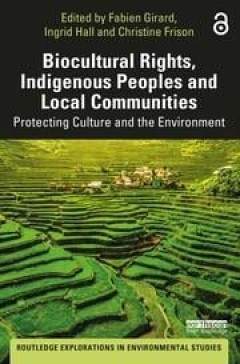
Biocultural Rights, Indigenous Peoples and Local Communities: Protecting Cult…
This volume presents a comprehensive overview of biocultural rights, examining how we can promote the role of indigenous peoples and local communities as environmental stewards and how we can ensure that their ways of life are protected. With Biocultural Community Protocols (BCPs) or Community Protocols (CPs) being increasingly seen as a powerful way of tackling this immense challenge, this …
- Edition
- -
- ISBN/ISSN
- 9781000593624
- Collation
- 380
- Series Title
- -
- Call Number
- -

Some thoughts concerning education, and Consequences of the lowering of inter…
•SiR, — These Thoughts concerning Education, which now come abroad into the world, do of right belong to you, being written several years since for your sake, and are no other than what you have already by you in my letters. I have so little varied any thing, but only the order of what was sent you at different times, and on several occasions, that the reader will easily find, in the famili…
- Edition
- -
- ISBN/ISSN
- 656893731
- Collation
- cdl; americana
- Series Title
- -
- Call Number
- SRLF:LAGE-2235643
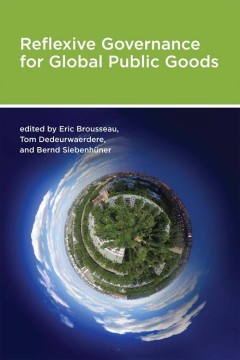
Reflexive governance for global public goods
Governance challenges and solutions for the provision of global public goods in such areas as the environment, food security, and development.OCLC-licensed vendor bibliographic record.
- Edition
- -
- ISBN/ISSN
- 9780262301213
- Collation
- 1 online resource (xiv, 366 pages) :illustrations.
- Series Title
- -
- Call Number
- -
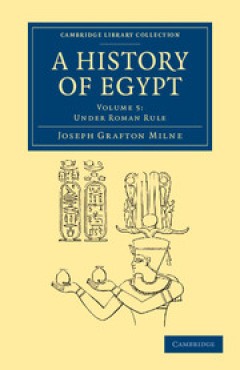
A History of Egypt
Published in six volumes between 1894 and 1905, this collection served as a valuable reference work for students and scholars of Egyptology at a time when ongoing archaeological excavations were adding significantly to the understanding of one of the world's oldest civilisations. At the forefront of this research was Sir William Matthew Flinders Petrie (1853–1942), whose pioneering methods ma…
- Edition
- -
- ISBN/ISSN
- 9781107325180
- Collation
- -
- Series Title
- Cambridge Library Collection - Archaeology
- Call Number
- -
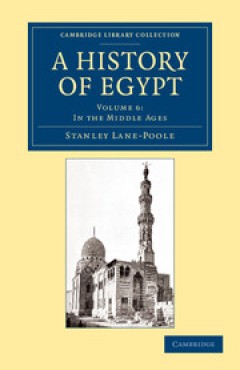
A History of Egypt
Published in six volumes between 1894 and 1905, this collection served as a valuable reference work for students and scholars of Egyptology at a time when ongoing archaeological excavations were adding significantly to the understanding of one of the world's oldest civilisations. At the forefront of this research was Sir William Matthew Flinders Petrie (1853–1942), whose pioneering methods ma…
- Edition
- -
- ISBN/ISSN
- 9781107325197
- Collation
- -
- Series Title
- Cambridge Library Collection - Archaeology
- Call Number
- -
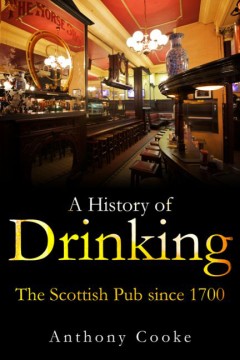
A History of Drinking The Scottish Pub since 1700
A social history of Scottish drinking and drinking establishmentsPoets and writers from Robert Burns and Walter Scott to Ian Rankin and Irvine Welsh have left vivid descriptions of the pleasures and pains of Scottish drinking places. Pubs also provided public spaces for occupational groups to meet, for commercial transactions, for literary and cultural activities and for everyday life and work …
- Edition
- -
- ISBN/ISSN
- 9781474400138
- Collation
- -
- Series Title
- -
- Call Number
- -
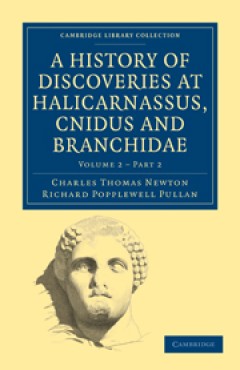
A History of Discoveries at Halicarnassus, Cnidus and Branchidae
Charles Thomas Newton (1816–1894) was a British archaeologist specialising in Greek and Roman artefacts. He studied at Christ Church, Oxford before joining the British Museum. Newton left the Museum in 1852 to explore the coast of Asia Minor, and in 1856 he discovered the remains of the Mausoleum of Halicarnassus, one of the seven ancient wonders of the world. This study, first published in 1…
- Edition
- -
- ISBN/ISSN
- 9780511910302
- Collation
- -
- Series Title
- Cambridge Library Collection - Archaeology
- Call Number
- -
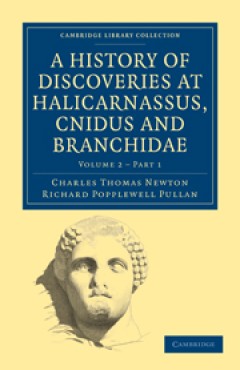
A History of Discoveries at Halicarnassus, Cnidus and Branchidae
Charles Thomas Newton (1816–1894) was a British archaeologist specialising in Greek and Roman artefacts. He studied at Christ Church, Oxford before joining the British Museum. Newton left the Museum in 1852 to explore the coast of Asia Minor, and in 1856 he discovered the remains of the Mausoleum of Halicarnassus, one of the seven ancient wonders of the world. This study, first published in 1…
- Edition
- -
- ISBN/ISSN
- 9780511910296
- Collation
- -
- Series Title
- Cambridge Library Collection - Archaeology
- Call Number
- -
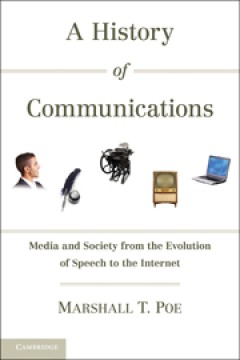
A History of Communications Media and Society from the Evolution of Speech t…
A History of Communications advances a theory of media that explains the origins and impact of different forms of communication - speech, writing, print, electronic devices and the Internet - on human history in the long term. New media are 'pulled' into widespread use by broad historical trends and these media, once in widespread use, 'push' social institutions and beliefs in predictable direc…
- Edition
- -
- ISBN/ISSN
- 9780511976919
- Collation
- -
- Series Title
- -
- Call Number
- -

A History of American Working-Class Literature
A History of American Working-Class Literature sheds light not only on the lived experience of class but the enormously varied creativity of working-class people throughout the history of what is now the United States. By charting a chronology of working-class experience, as the conditions of work have changed over time, this volume shows how the practice of organizing, economic competition, pl…
- Edition
- -
- ISBN/ISSN
- 9781316216439
- Collation
- -
- Series Title
- -
- Call Number
- -
 Computer Science, Information & General Works
Computer Science, Information & General Works  Philosophy & Psychology
Philosophy & Psychology  Religion
Religion  Social Sciences
Social Sciences  Language
Language  Pure Science
Pure Science  Applied Sciences
Applied Sciences  Art & Recreation
Art & Recreation  Literature
Literature  History & Geography
History & Geography